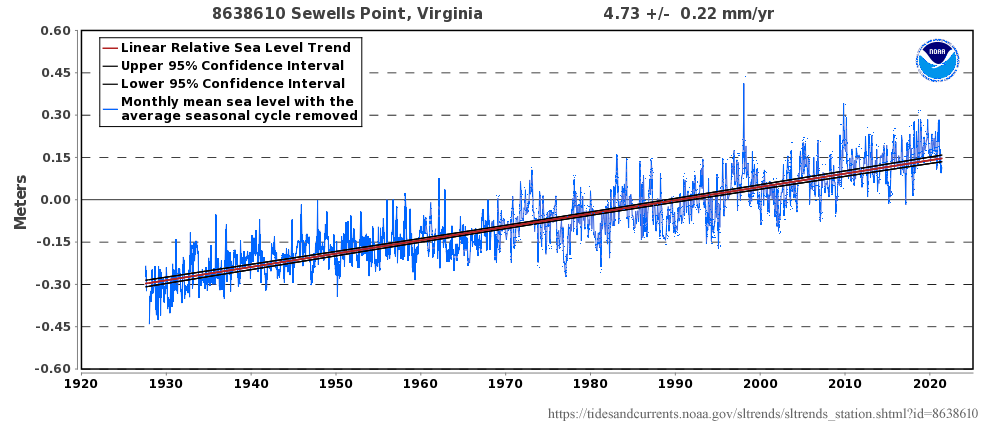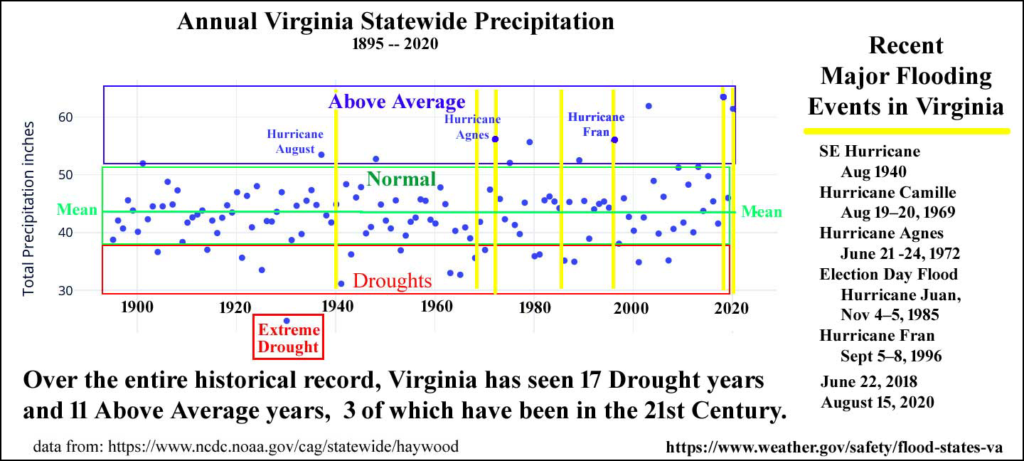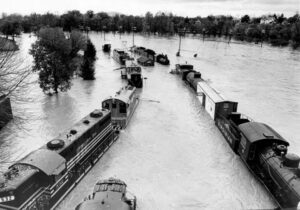
Ninety years of relative sea level rise (SLR) at Norfolk’s Sewells Point gauge, with mean lines added by Kip Hansen. It is about two-third due to sinking land, one-third due to long term absolute SLR, and in no way due to modern CO2 emissions.
by Steve Haner and Kip Hansen
When discussing sea level rise, on Virginia’s coast or anywhere else, watch the terms being used very carefully. Absolute sea level is the height of the ocean compared to the center of the Earth. Relative sea level is the height of the ocean compared to a specific point on the shore. They are not the same. Continue reading





